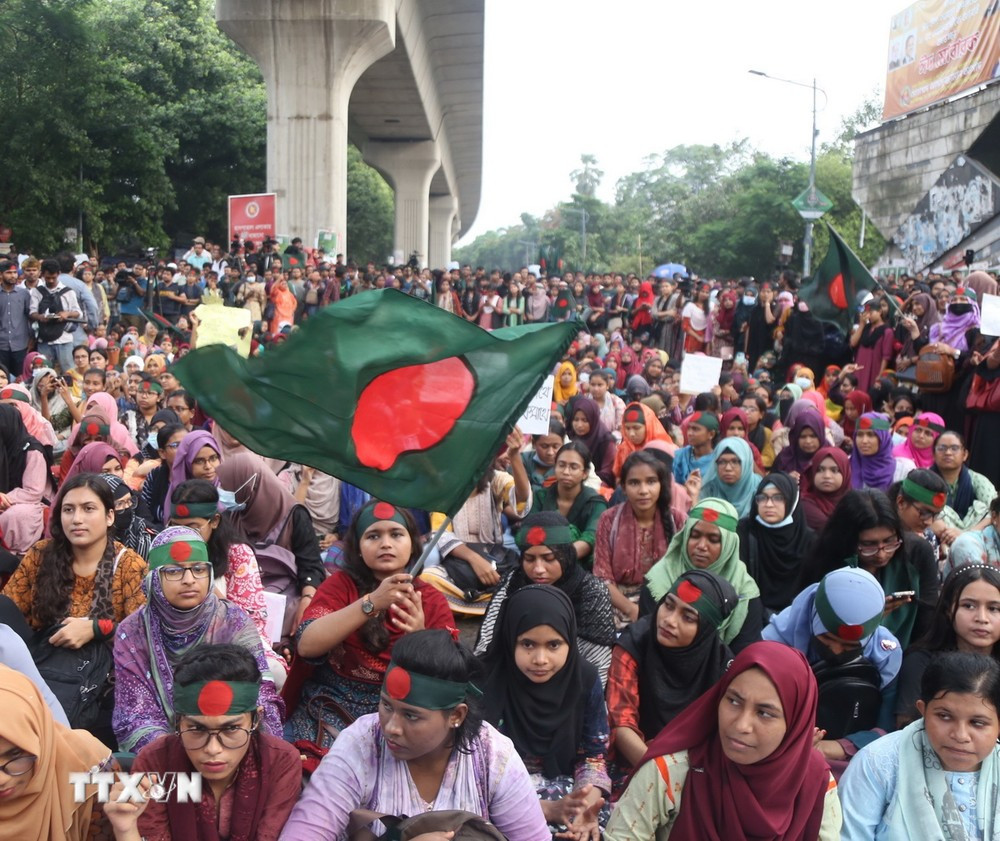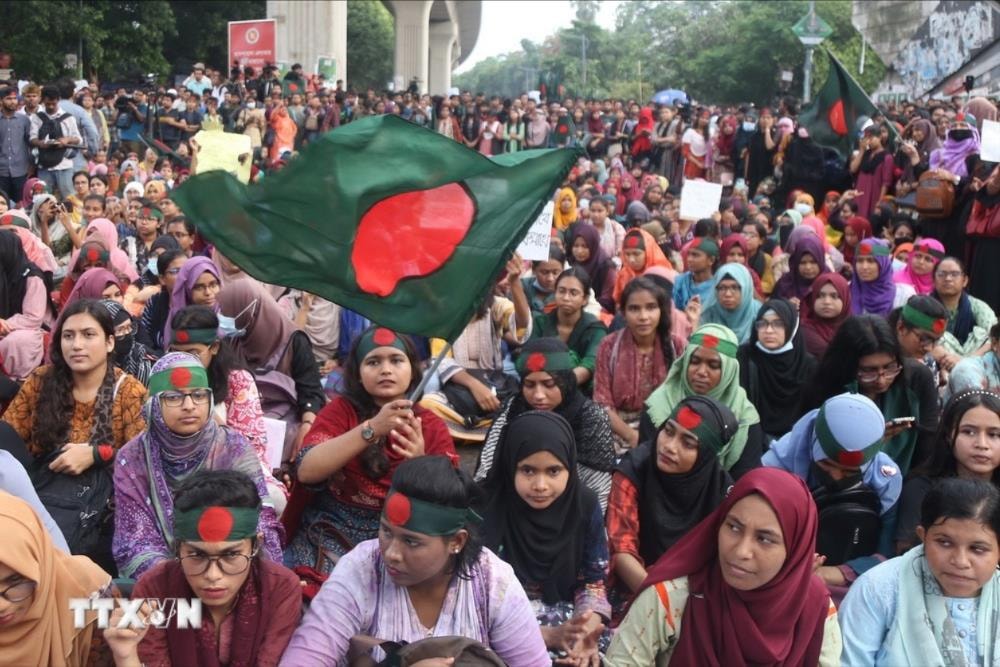

Bangladesh’s military said it would lift a curfew imposed to quell protests at dawn 6/8, hours after it seized power following the resignation of former Prime Minister Sheikh Hasina and her flight out of the country by helicopter.
“Offices, factories, schools, colleges … will be opened” from 6 (00:00 GMT) morning 6/8, the Bangladesh Army announced.
In another development, India has stepped up security around the border as Ms Hasina landed at Hindon airport in Ghaziabad on 5/8.
On the same day, some northeastern states bordering Bangladesh also took measures to ensure security.
Meghalaya’s deputy chief minister said the state has imposed a night curfew along its border with Bangladesh. Meanwhile, the Assam government has also put all districts bordering the neighbouring country on “high alert”.
Additionally, the India-Bangladesh border area in West Bengal state has also been put on high alert.
Earlier in the day, West Bengal Chief Minister Mamata Banerjee appealed to people in the state to maintain peace and avoid provocation.
In light of the situation in Bangladesh, on August 5, Indian Prime Minister Narendra Modi chaired a meeting of the Cabinet Committee on Security (CCS) – which briefed him on the ongoing situation in Bangladesh.
The meeting was attended by Home Minister Amit Shah, Defence Minister Rajnath Singh, External Affairs Minister S Jaishankar, Finance Minister Nirmala Sitharaman, Cabinet Secretary Rajiv Gauba, Principal Secretary to the Prime Minister PK Mishra, Director of External Intelligence Service Ravi Sinha and Director of Intelligence Bureau Tapan Deka.
Traders said that trade between India and Bangladesh was “halted” on 5/8 afternoon. Earlier on 4/8, the Bangladesh government had announced a holiday for trade activities on 3 days, except for essential activities.
West Bengal Exporters Coordination Committee Secretary Ujjal Saha said that due to the lack of clearance by Bangladesh customs at the border gates, import and export activities here have been stalled.”
Meanwhile, the European Union (EU) on 5/8 also called for an “orderly and peaceful” transfer of power in the country.
The EU’s High Representative for Foreign Affairs and Security Policy, Josep Borrell, also called for calm and restraint. He stressed that it was important to ensure an orderly and peaceful transfer of power to a democratically elected government that fully respects human rights and democratic principles.
TB (theo TTXVN)

